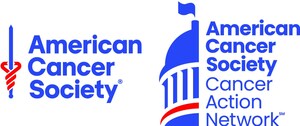ATLANTA, Sept. 13, 2021 /PRNewswire/ -- The American Cancer Society (ACS) has awarded $2 million in funding to more than 130 health systems across the country to alleviate the financial burden of transportation costs for cancer patients. This funding will assist an estimated 5,000 patients and provide approximately 70,000 rides to treatment across the nation.
For cancer patients, lack of transportation creates significant barriers to receiving lifesaving treatment and is known to contribute to disparities in cancer outcomes. ACS patient support services—such as these transportation grants—fill critical cancer gaps and are aligned to the ACS goal of improving lives.
Transportation assistance is only one way the American Cancer Society is working to improve patient outcomes, and complemented by direct patient support through education, navigation, and lodging. Each year, the ACS typically serves under 6,000 cancer patients with transportation assistance through our existing transportation grants program. During 2020, the program provided more than 71,000 rides. But a gap remains in many communities for cancer patients for whom transportation is a challenge. The newly awarded grant funding provides a boost of support to help address currently unmet needs.
"The American Cancer Society exists to improve the lives of cancer patients and their families through advocacy, discovery, and patient support. We are dedicated to reducing health disparities in cancer," said Dr. Karen E. Knudsen, CEO of the American Cancer Society and American Cancer Society Cancer Action Network. "Health care disparities can affect every step of cancer care — from prevention and screening to the quality of life after cancer treatment. Disparities in care such as gaps in treatment due to lack of transportation can result in serious health consequences for patients."
Transportation is the third most-commonly cited barrier to accessing health services for older adults1. Every year, 3.6 million people in the United States do not obtain medical care due to transportation issues. Transportation issues include lack of vehicle access, inadequate infrastructure, long distances and lengthy times to reach needed services, transportation costs, and adverse policies that affect travel.2
The American Cancer Society believes all people should have the opportunity to live a longer, healthier life free from cancer regardless of how much money they make, the color of their skin, their sexual orientation, gender identity, their disability status, or where they live. This means providing specific tools and resources based on individual needs to allow everyone the opportunity to be as healthy as possible. Achieving health equity requires the removal of barriers, including transportation, that prevent people from receiving the care and treatment they need.
1 Fitzpatrick, A. L., Powe, N. R., Cooper, L. S., Ives, D. G. & Robbins, J. A. (2004). Barriers to health care access among the elderly and who perceives them. American Journal of Public Health, 94(10): 1788-1794.
2 Source: http://www.hpoe.org/resources/ahahret-guides/3078
SOURCE American Cancer Society

Related Links
WANT YOUR COMPANY'S NEWS FEATURED ON PRNEWSWIRE.COM?
Newsrooms &
Influencers
Digital Media
Outlets
Journalists
Opted In




Share this article